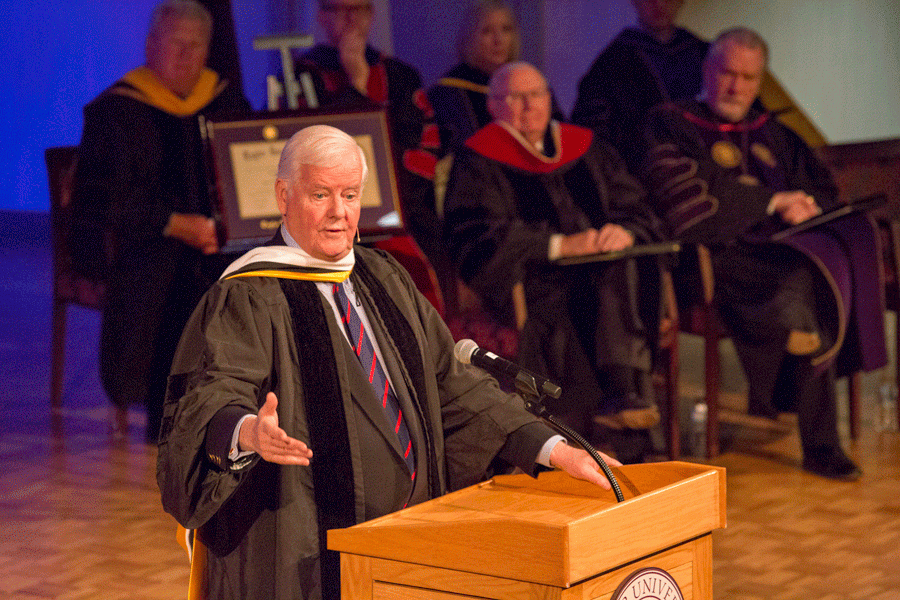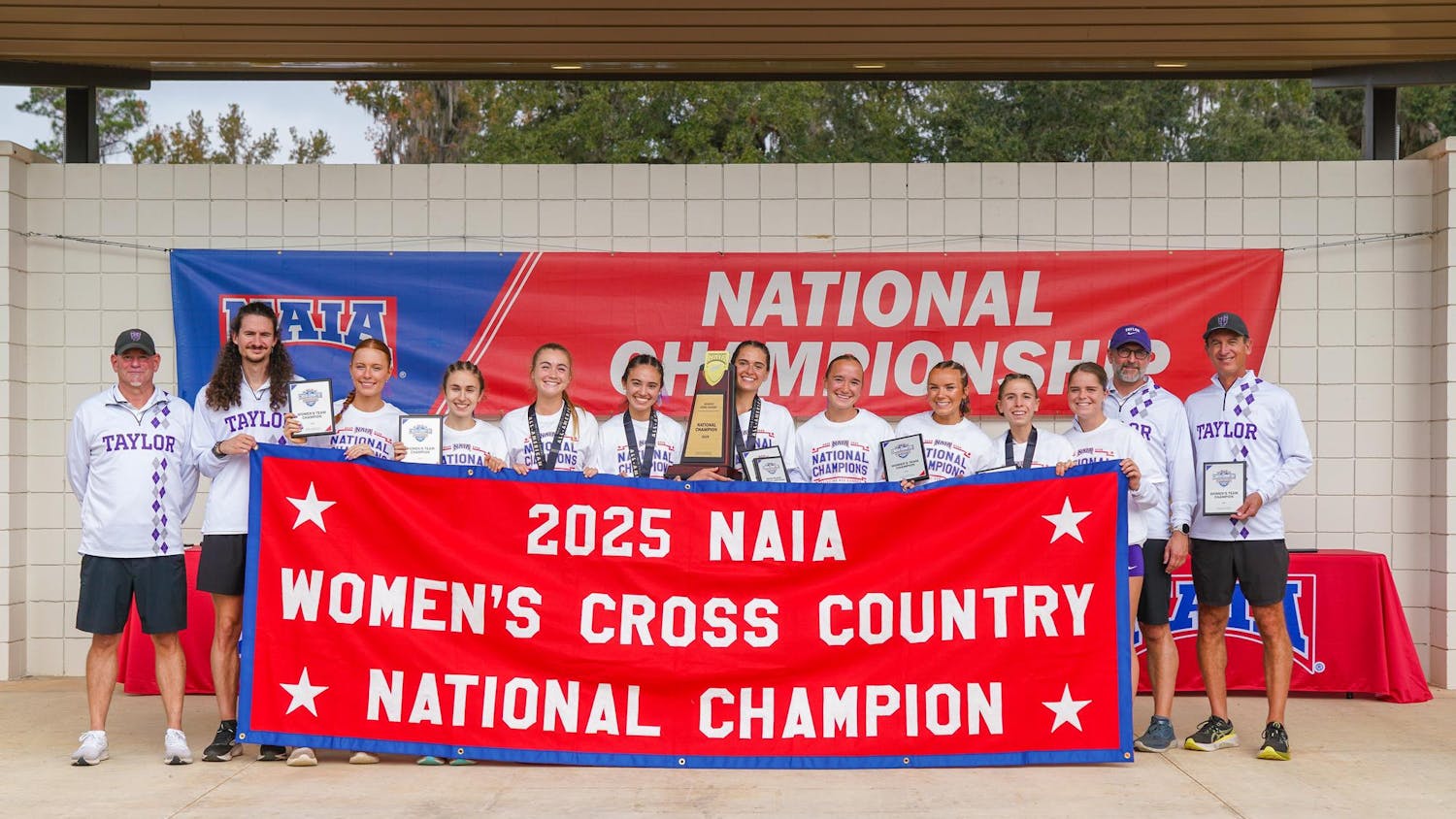
By Cassidy Grom | Echo
Taylor University awarded Os Guinness, a Christian author and social critic, an honorary doctorate on Wednesday, March 29. After he spoke in chapel, Guinness participated in a Q&A in Cornwall Auditorium. Below, are some of the audience members' questions and Guinness' answers. Due to limited space, The Echo summarized each question and portions of the answers.
You were born to a missionary family in China. How did those early cross-cultural experiences and that background impact your further life?
"There is a lot of talk today about (Third Culture Kids). Maybe some of you in the room are. I technically am, but personally, I have an aversion to all those sort of categories and labels that are stuck on people-and then you have to think exactly like that," Guinness said. However, Guinness said he appreciates his family heritage.
He told the story of unlikely events that led to his Christian heritage: In 1815, one of Dublin's city councilors insulted the great Daniel O'Connell and if someone's honor was insulted, the only recourse was a duel. The councilor was a good shot, and O'Connell didn't stand a chance. But to everyone's amazement, the councilor missed, and O'Connell-to their equal amazement-killed his opponent. Now the councilor's wife was left alone with two children, and the huge scandal left them poverty-stricken. She went to Scotland to end her life. Just before committing suicide, she saw a plowman plowing his field and whistling hymns. He performed his work with meticulous care: "obviously a Calvinist-a reformed person," Guinness joked. The plowman led the woman to Christ. The woman then returned to Dublin and met and married Guinness's great-great-grandfather, the youngest son of Arthur Guinness, the famous brewer. "The point of the story was that she became a great woman of prayer, and she prayed every day for 12 generations of us. And I am the sixth (generation) . . . the older I get, the more I am aware that I've done very little . . . It's the ways of the Lord and that strength of a heritage that means far far more," Guinness said.
I am an entrepreneur. What is your view on Christians taking risks?
"The roots of entrepreneurship are in scripture. I would argue that faith is the ultimate entrepreneurialism . . . Hebrews 11 is all about entrepreneurialism. They all did things that were not answered in their lifetimes," Guinness said.
According to him, concerns about our legacies are "rubbish." It is a humanistic idea to believe we can understand our legacies. Guinness said we have no idea what our legacies will be, but the Lord does. "Success is from the Lord, who says, 'Well done'," Guinness said. "We should all have a sense of calling, and therefore pursue ventures that are innovative . . . better to fail at some grand venture like that then to succeed at some petty little thing that's easy to quantify. So faith is the ultimate entrepreneurialism."
As a person from the global south who both emulates the West and also fights against some of the values that we see have been placed on us by the West, what does it look like for Christians who want to share the gospel and to interact with people from other faiths?
"You face particular challenges at all sorts of levels," Guinness said. "Much of the Church in Asia had the gospel brought to them by Western Christians . . . the people that came brought some of the limitations of the Church in the west. So much of evangelicalism in Asia has a pietism and a privatization that is very limiting and that is not very good for engaging the modern world . . . . (You've) got to grapple with alternative worldviews, (You've) got to grapple with alternative worldviews, (you've) got to grapple with all the things people load you with . . . the challenges of identity in the modern world too. Now, to do that, we need good-thinking Christians, and thank God for a growing number in Asia . . . so go for it! You have a lot to teach us."





